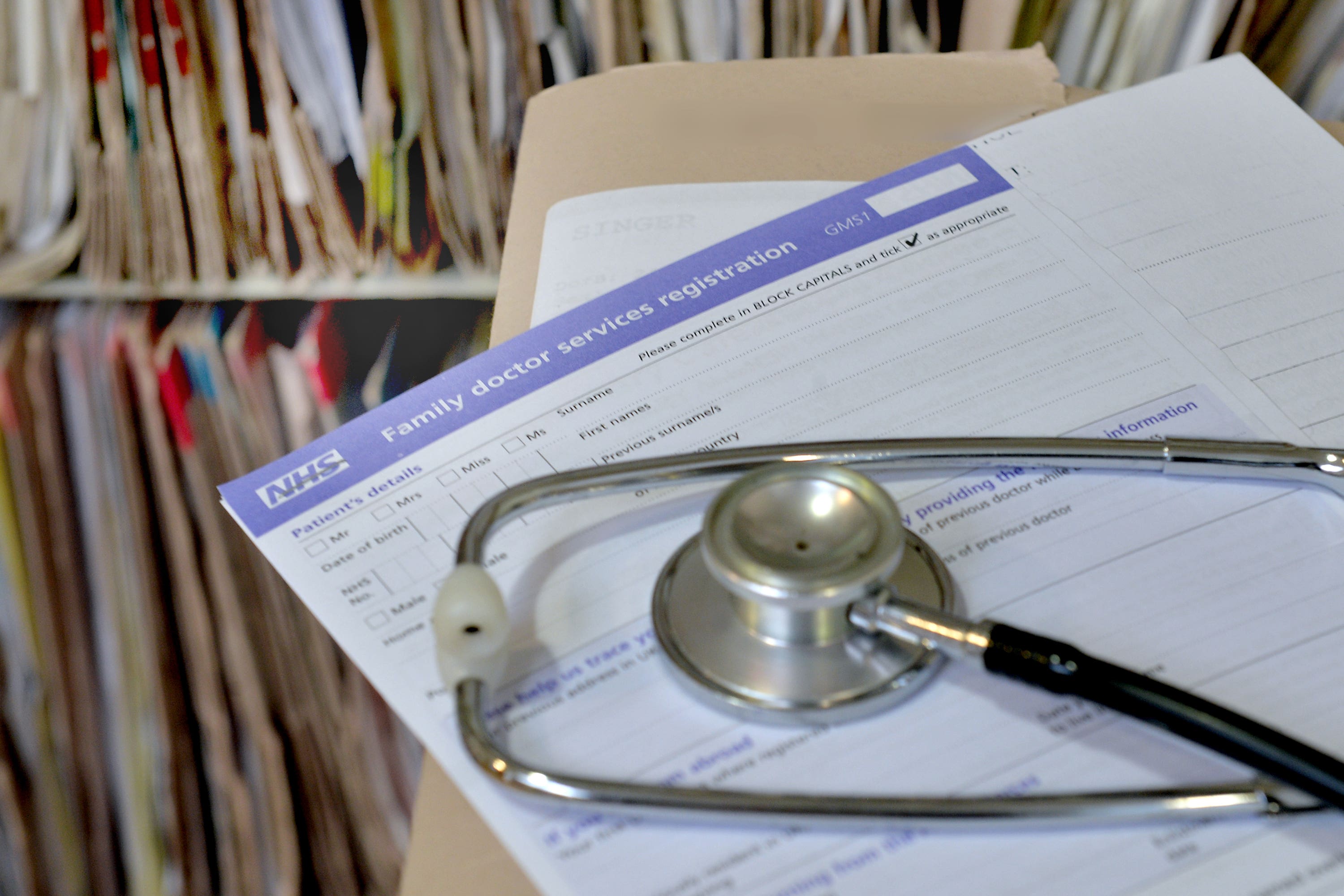New study reveals patients’ feelings over online GP appointments
Virtual consultations became common during the coronavirus pandemic, but they have proved controversial, with concerns about accessibility.

Your support helps us to tell the story
From reproductive rights to climate change to Big Tech, The Independent is on the ground when the story is developing. Whether it's investigating the financials of Elon Musk's pro-Trump PAC or producing our latest documentary, 'The A Word', which shines a light on the American women fighting for reproductive rights, we know how important it is to parse out the facts from the messaging.
At such a critical moment in US history, we need reporters on the ground. Your donation allows us to keep sending journalists to speak to both sides of the story.
The Independent is trusted by Americans across the entire political spectrum. And unlike many other quality news outlets, we choose not to lock Americans out of our reporting and analysis with paywalls. We believe quality journalism should be available to everyone, paid for by those who can afford it.
Your support makes all the difference.Patients prefer online GP appointments for speed and to discuss delicate complaints, according to a new study.
Virtual consultations became a common feature of GP care during the coronavirus pandemic, but they have proved controversial, with some critics raising concerns about accessibility.
The new research, led by academics at the University of Manchester, showed that older patients find online systems particularly helpful.
But some people still want a return to traditional ways of accessing their GP, the study revealed.
Most of the patients in our sample said they preferred online consultations because they are more convenient, flexible, and efficient than in-person appointments for dealing with simple health problems such as rashes or colds
The study, published in the British Journal of General Practice, involved academics analysing written comments from almost 12,000 patients at 240 GP practices across England who used Patchs – an online consultation system.
The Patchs system allows patients to request help over the internet. This is then followed up by written message, telephone call, video consultation, or arranging an in-person visit.
After using the system patients are invited to give feedback on their experience.
Researchers looked at 21,457 comments from patients during 2020-2022.
They found that most patients highlighted advantages of online consultations.
Patients reported that online appointments saved them time by avoiding busy phone lines to reception, unnecessary travel, and long waits due to delayed appointments.
They also expressed a preference for providing their GP with background information in advance.
Some patients who struggle to communicate in in-person appointments, such as patients with autism, hearing loss and anxiety, prefer using online consultations. And some patients, especially men, preferred discussing sensitive topics online
The main benefit reported by patients was the ability to receive a quick response to their query compared with routine in-person appointments.
Full-time workers and those with childcare responsibilities expressed a preference for the flexibility of services.
Senior author Dr Ben Brown, from the University of Manchester, said: “Some patients who struggle to communicate in in-person appointments, such as patients with autism, hearing loss and anxiety, prefer using online consultations.
“And some patients, especially men, preferred discussing sensitive topics online.”
However, some patients did express “frustration” with the system, which the authors said was largely down to poor communication from GP practices.
For others it caused “confusion”, with some patients believing the system should be used to book in-person appointments and others saying they were unaware that the consultations would lead to in-person appointments where necessary.
Perhaps surprisingly, many older participants found the system easier to navigate than expected and often preferred using it to contact their GP practice than traditional methods
Lead author Dr Susan Moschogianis, from the University of Manchester, said: “Most of the patients in our sample said they preferred online consultations because they are more convenient, flexible, and efficient than in-person appointments for dealing with simple health problems such as rashes or colds.
“The primary benefit reported by most patients was the ability to receive a quick response to their query, and male patients in particular reported they were more likely to contact their GP using them.
“Perhaps surprisingly, many older participants found the system easier to navigate than expected and often preferred using it to contact their GP practice than traditional methods.
“But not everyone was as positive. Some still wanted a return to traditional ways of accessing their GP practice using more traditional methods such as telephone and in-person visits.
“And poor communication about the online consultation systems often left patients disappointed and frustrated.”
Dr Brown added: “Drawing directly from the findings, we make specific recommendations for GP practices and online consultation system designers for how they can optimise patients’ experience.”
Commenting on the study, Professor Kamila Hawthorne, chair of the Royal College of GPs, said: “This study shows that patients appreciate a mixed-method approach to accessing GP care and services – and it has been the College’s position for some time that how patients access our care should be a shared decision between the clinician and patient.
“It is encouraging to see this research address some of the common misconceptions around the use of remote consultations in general practice.
“Around 70% of care in general practice is carried out in person. Safe, timely and appropriate care is being delivered remotely every day by GPs and our teams – and while it isn’t suitable for everyone, it is the preferred choice for many patients.
“There is no one-size-fits-all approach to accessing care. Many patients prefer to see their GP face to face, which is still how most consultations are delivered, but others appreciate the convenience that an online consultation offers – and it’s particularly interesting that this study found older patients find them helpful.”